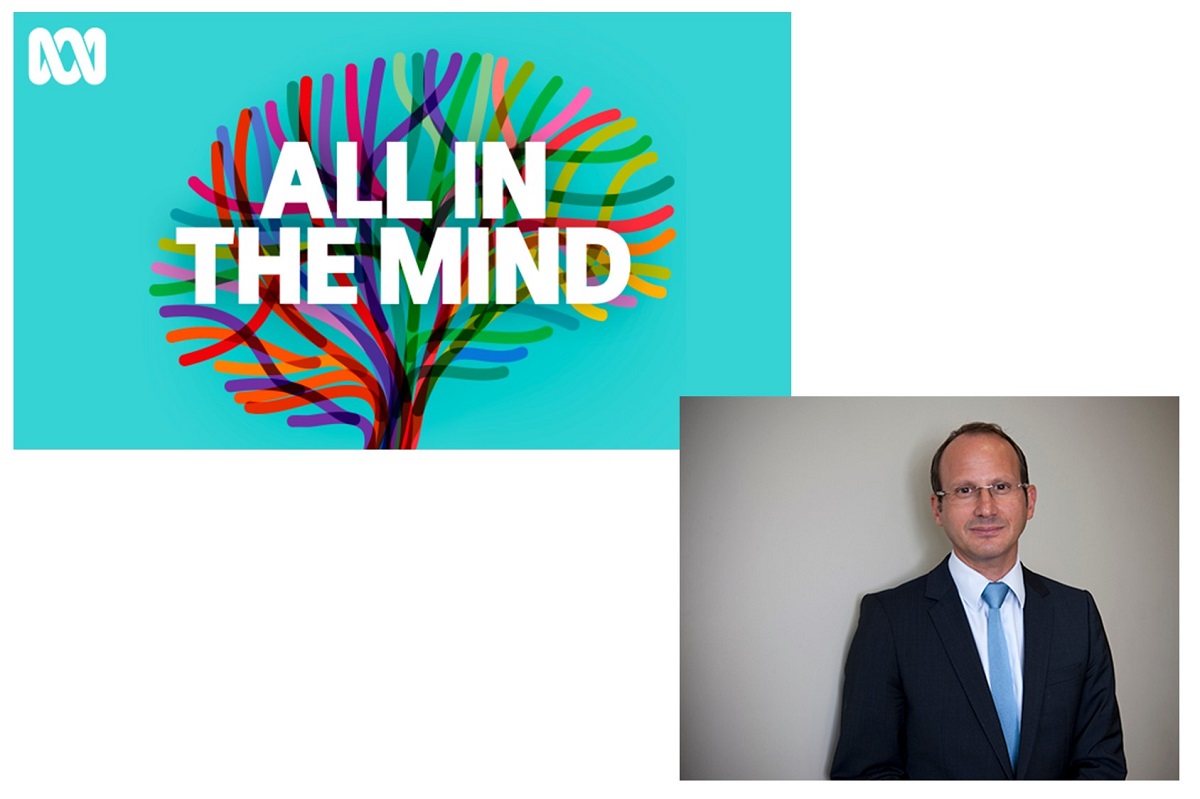
I’m a podcast fan.
You can learn all sorts of interesting stuff from podcasts, all while you sit on the bus, or drive to work.
‘All in the Mind‘ is a podcast from the ABC that is “about the brain and behaviour, and the fascinating connections between them”.
A recent episode explored the question “Does Mental Illness Exist?”
The guest on the podcast was Professor Peter Kinderman from the University of Liverpool.
Peter’s core argument is that viewing mental distress as an “illness” is the wrong approach. Labelling a constellation of symptoms (e.g. low mood, feeling hopeless, loss of interest in usual activities) as indicating an underlying disease state (e.g, depression):
- is scientifically inaccurate because a) our diagnostic categories are not very robust and b) there is little convincing evidence of causal physiological processes to demarcate the different mental illness diagnoses;
- completely ignores the convincing evidence we have that distress is powerfully predicted by social, environmental and relational exposures (e.g. abuse, unemployment, recession, domestic violence, war) – i.e. people become distressed because bad things happen to people in the context of bad relationships;
- suits those with vested interests – e.g. drug companies who can market medications to different diagnoses; AND
- is unhelpful to those in distress, as the resulting treatments focus instead on the supposed disease state, and not on the conditions of that individual’s life that may have given rise the distress.
Peter argues instead that we should abandon the disease model – it is ineffective and lacks humanity. We should start understanding psychological and emotional distress from a human social perspective. Instead of asking “why is he depressed?” we should ask “why do human feel hopeless at times?”. We should simultaneously be asking what makes people happy, content, hopeful and optimistic.
By dropping diagnostic labels, we can instead look at the life conditions that influence our well-being; physical health, relationships, sense of purpose. We can also explore how people make sense of the things that happen to them, and how that contributes to their distress.
For those with serious emotional and psychological problems (and there is no question they exist), we should separate out the problems and abandon the diagnosis – that is – speak of hallucinations, paranoid fears or disorganised behaviour instead of ‘schizophrenia’. We can then explore each symptom in relation to what has happened in their lives and how they made sense of that, and plan for their recovery. We should see people as distressed because of life circumstances, not because of underlying disease. Whilst medications might be appropriate, there should be less reliance on them and much clearer goals for their use, rather than “you are depressed, have this anti-depressant”.
Finally, we should be asking bigger questions about society. Are we raising kids in a society that values and loves them and gives them hope for the future or are we raising kids in a society where we hope to identify and diagnose mental illness early and treat it.
There are a couple of good examples in the interview of where Peter contrasts current treatment, with ideal treatment, for example, ADHD. ADHD is a chronic condition, often diganosed in childhood which involves attention difficulties, hyperactivity and impulsiveness. Treatment commonly involves stimulant drugs such as Ritalin.
Currently, ADHD is viewed as an illness, residing in the child, and is treated so that children can co-exist in classrooms more effectively with other kids. Whilst there has been an explosion in ‘cases’ of ADHD, the condition itself and its prevalence is different across cultures, countries, and socioeconomic status suggesting we may not have a very good grasp of exactly what the condition is.
This is not to imply that these children are not experiencing problems, they definitely are. But labelling (and medicating) children who aren’t fitting in, how about we better understand the origin of the problem symptoms and create settings that better include those children.
I find Peter’s views to be both controversial, yet common-sense at the same time.
Controversial because his approach does necessitate a significant shift in how we conduct a lot of mental health research, which is based on a) a view of mental health problems as illnesses and b) the use of diagnosis to classify those illnesses and guide treatment research. Instead of asking questions like “What is the etiology of depression”, we’d be asking questions like “What is it about our society that is making people feel so hopeless?”
His views are controversial also, because a lot of clinical practice in mental health is based around the notion of treating an illness. We treat ‘depression’. Diagnosis is used to justify access to services or supports. Diagnosis is the language that many clinicians use to communicate about patients and to patients. We’ve spent many years trying to get people to talk more openly about ‘mental illness’ and this feels like an awkward challenge to that idea.
At the same time however, I find Peter’s view to reflect the feeling amongst many psychologists that understanding a person’s distress is not about attaching a label to it, or assuming a label of ‘depression’ means anything more than a shorthand for describing a collection of symptoms. Rather, it is our understanding of how that person’s distress arose and is maintained in the context of their life experiences and beliefs about the world that is important. Understand the person and their history, and you understand the symptoms.
Regardless of my thoughts on the matter, I hope you enjoy the podcast and find it thought provoking. Feel free to share your views or thoughts via the methods described below.

